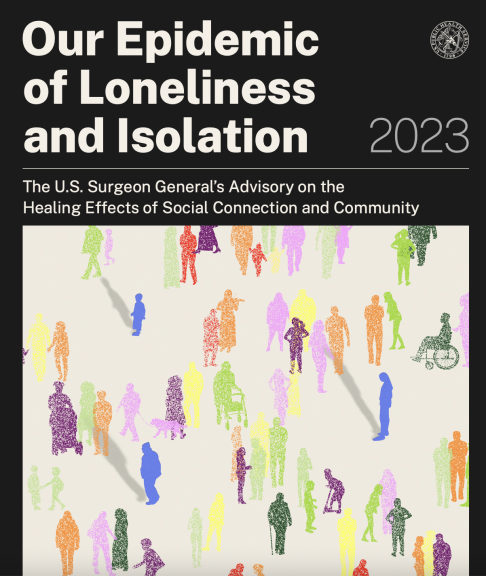By Heather Kamper, LCSW
Clinical Counselor, Vanderbilt Work/Life Connections-EAP
Loneliness permeates the lives of most of us at one time or another. Though technological advances such as telehealth and online meeting platforms have added efficiency and immediacy to our lives in many ways, the experience of loneliness has grown. U.S. Surgeon General Vivek Murthy, MD, recently released an 85-page advisory declaring loneliness a new public health epidemic in the United States.
The science of loneliness tells us that the consequences to individual and social wellbeing are profound—and the health impacts can be huge as well. The report warns that loneliness is as destructive to our health as smoking and has significant effects on mental health, increasing the risks of heart disease, stroke and dementia. Dr. Murthy says the antidote to the crisis is to rebuild the nation's social fabric.
“Our relationships are a source of healing and well-being hiding in plain sight—one that can help us live healthier, more fulfilled, and more productive lives,” Dr. Murthy said. “Given the significant health consequences of loneliness and isolation, we must prioritize building social connection the same way we have prioritized other critical public health issues such as tobacco, obesity and substance use disorders. Together, we can build a country that’s healthier, more resilient, less lonely and more connected.”
Given the physical and mental risks of loneliness and isolation, how can we improve our social connections?
- Nurture relationships in your personal and professional life. Pursue opportunities to connect with people—and not just on screens. Go to lunch with a colleague, plan a walk with a neighbor and call friends on a regular basis. Bring dinner or send a gift card to a friend who has had a baby or is recovering from surgery.
- Take advantage of events and activities in your community. Whether that's engaging in shared religious practices, networking with interest groups or becoming involved in public policy, consider how your community could use your talents and energy.
- Find ways to serve in your community. Nonprofit organizations are always searching for volunteers, and you can contribute to areas you enjoy, such as community cleanup, mental health, food insecurity, adult literacy, animal rights, immigrant and refugee support, and more. Consider investing in public institutions that bring people together, such as parks, libraries and playgrounds.
